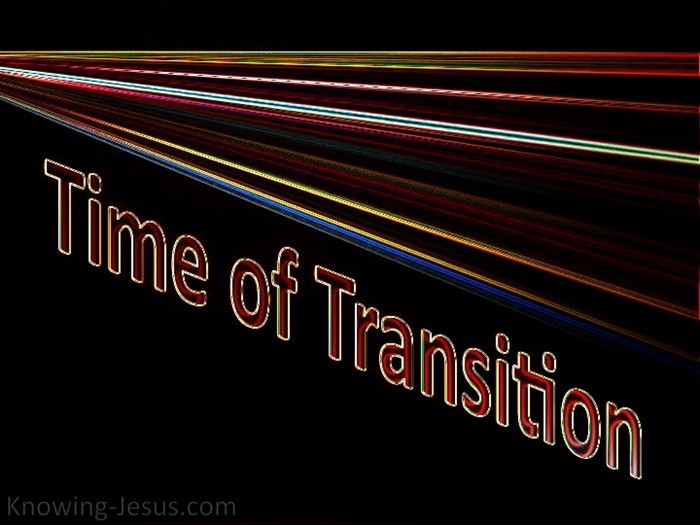◄ Time of Transition ►

Is God for Jews only? Is He not also for Gentiles? Yes, for Gentiles too.
Romans 3:29
Historical Account
It is crucial to recognise the book of Acts is a historical account of the early church. It outlines the founding of the church; the spread of the gospel; the main characters. It lists the different congregation and individuals who were touched with gospel truth. It shows how the early focus of church evangelism was exclusively to the Jews. It brings Saul of Tarsus, who became Paul - the apostle to the Gentiles, into the arena.
Peter and Paul
Acts demonstrates a balance between the influence and interests of Peter and Paul. Peter is seen as the apostle to the circumcised (Jews) – Paul the apostle to the Gentiles. It scripts the geographical spread of the gospel – to the Jew first and then to Gentiles. It exposes discontent between Hebraic Jews and Grecian Jews – and how it was resolved. It details some doctrinal controversies that challenged the leaders of the early church. It lists the principal participants and the authoritative conclusions of the early church councils, which authenticated the apostle Paul as God’s chosen vessel to the Gentiles.
Overlapping Bridge
Acts is first and foremost a historical account of the root and spread of Christianity. Acts is the transitional bridge between the dispensation of Israel and the church age. Acts is an overlapping bridge-of-time during which evangelistic responsibility is being passed from the old dispensation of Israel to the Church – in the age of grace.
Progressive Revelation
Acts is a unique period of progressive revelation from God to His people, which dictates the need for a shift from pre-cross doctrine to post-resurrection teaching. Without Acts, the doctrinal authority of Paul’s epistles would be severely challenged. Without Acts – Christianity would have morphed into an unorthodox sect of Judaism. But throughout Acts – the doctrinal development of Scripture can quickly be traced.
Israel’s Messiah
Jesus came to the lost sheep of the house of Israel who were waiting for their Messiah. He came unto His own land to set up His kingdom but His own people rejected Him – they didn’t recognise Him. They crucified the Lord of glory and killed their king.
Birth of the Church
The coming of the Holy Spirit at Pentecost can be identified as the birth of the church. Pentecost was the point when the promised Holy Spirit was sent to indwell believers. The spirit of Truth was sent by Christ at Pentecost – to be our ever-present Comforter. This is what happened….
Historic Context
Now there were staying in Jerusalem God-fearing Jews from every nation under heaven. When they heard this sound, a crowd came together in bewilderment, because each one heard their own language being spoken. Utterly amazed, they asked: “Aren’t all these who are speaking Galileans? Then how is it that each of us hears them in our native language? Parthians; Medes and Elamites; residents of Mesopotamia; Judea and Cappadocia; Pontus and Asia; Phrygia and Pamphylia; Egypt and the parts of Libya near Cyrene; visitors from Rome (both Jews and converts to Judaism); Cretans and Arabs—we hear them declaring the wonders of God in our own tongues!” Amazed and perplexed, they asked one another, “What does this mean?” Acts 2:5-11
Jewish Messiah
What did it mean? Jesus had been sent to Israel – and those early days of Christianity were Jewish. The disciples were Jewish, and all Jewish men were to visit Jerusalem thrice yearly. They were to visit during Passover, Tabernacles and Pentecost – the feast of weeks. On that special day of Pentecost – Jews from all over the world were in Jerusalem.
Jewish Founders
It was Jews and converts to Judaism that witnessed the wonderful works of God. It was 3000 Jews and converts to Judaism that were born again on that special day. It was Jews and converts to Judaism who became the founders of the Christian faith – and it was Jews and Jewish converts to whom Peter addressed his glorious speech.
Jewish Scriptures
That magnificent sermon, by the unschooled apostle, quoted the Jewish scriptures. Peter wanted to show that Jesus was the Messiah, promised in so many oracles to Jews. He appealed to the Jews to take note that Jesus of Nazareth was a Man, accredited by God, Who demonstrated His Messianic credentials by His miracles, wonders and signs.
Jewish Converts
Peter’s entire discourse appealed to the Jews – to Israelites. He wanted the nation of Israel to know that God sent Jesus, Whom they crucified, both Lord and Messiah. He quoted from the prophet Joel in response to their amazement and perplexity. It was only to the men of Israel and converts to Judaism to whom Peter spoke.
Historic Roots
And it shall come to pass in the last days, saith God, I will pour out of my Spirit upon all flesh: and your sons and your daughters shall prophesy, and your young men shall see visions, and your old men shall dream dreams. And on my servants and on my handmaidens I will pour out in those days of my Spirit; and they shall prophesy. And I will show wonders in heaven above, and signs in the earth beneath; blood, and fire, and vapour of smoke: The sun shall be turned into darkness, and the moon into blood, before that great and notable day of the Lord. And it shall come to pass, that whosoever shall call on the name of the Lord shall be saved. Acts 2:17-21
Wonderful Prophecy
That wonderful prophecy from Joel appeared to begin on that day of Pentecost – when Peter called the nation of Israel to repent of their sins and turn back to God as did John the Baptist, Jesus and the apostles during Christ earthly life. That wonderful prophecy from Joel will have its full and final fulfilment on that amazing future day, when the Jews shall look on Him Whom they have pierced – when Israel as a nation cries, Blessed is He Who comes in the name of the Lord. Psalm 118:36
Gospel of the Kingdom
Those early chapters in Acts show the apostles teaching Jews and Jewish converts. On and on we discover the Jews were the target-audience for the gospel message – not the gospel of grace which was given to Paul, but the gospel of the kingdom. They continued proclaiming the gospel of the kingdom – not the gospel of grace. They preserved the teachings of John the Baptist, Jesus and His disciples – to Jews:- the gospel of the kingdom – the gospel of the coming Jewish Messiah.
Pre-Cross Teaching
Peter and the apostles continued the pre-cross teaching of the kingdom to Jews in the Temple, and following the brutal stoning of Stephen, many believers were scattered abroad, travelling far and wide – but preaching the Word to no one except Jews.
Historic Foundation
It is crucial to recognise the book of Acts as a historical account of the early church. It outlines the founding of the church; the spread of the gospel; the main characters. It lists the different congregations and individuals who were touched with gospel truth.
Church Doctrine
It shows how the early focus of church evangelism – was exclusively to the Jews, but God in His grace raised up Paul the apostle to reveal His plans for the church. May our hearts and minds be open to the Spirit’s leading concerning the book of Acts. Without Acts, Christianity could have morphed into an unorthodox sect of Judaism – but the teachings and doctrines for the Church – were given to us – through Paul.

Never miss a post









